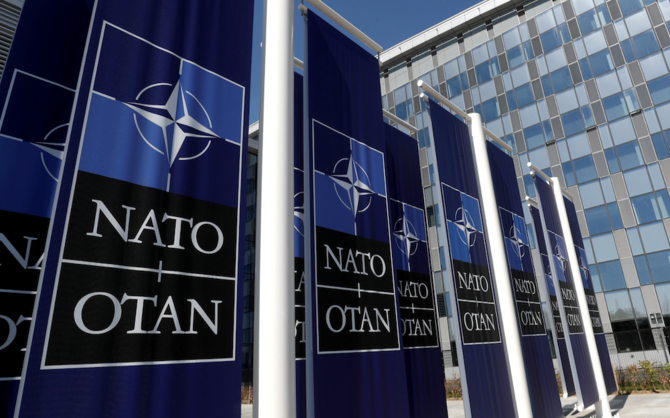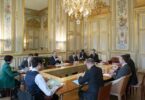Dr. Theodore Karasik
Europe’s unity is an important question, especially in the face of today’s regional and global challenges. Never before has the continent faced such a myriad of threats and problems. While a wall of weapons will now be built from Finland to the Balkans to halt Russia, how the politics of the continent works in the near future becomes salient.
There is no “United Europe,” really, and the situation needs to be repaired by the stakeholders. Across a spectrum of interests, the European continent is facing not only a long-term threat from Russia and its campaign in Ukraine, but also beyond to the political, economic and social pressures that affect each state. Ongoing processes and long-term consequences need to be thought about.
Currently, European unity is strong at the security level, and rightfully so, but the European states must remain united in the face of the ongoing confrontation with Russia. Thanks to NATO, the ability of the continent to pull together the force structure that helps to empower Ukrainian operations against the Russian occupation of its lands is a net positive, for now. The process of arming Ukraine has been lengthy, with much haggling over European contributions to Kyiv, including how quickly and from whom. Turkiye has shown how important it is to the new construct. The negotiations have been frustrating for Kyiv, which sees European unity and the continent generally as its savior. But there are problems within Europe itself that will test the continent’s unity on the security front, with energy, climate change and social grievances falling under this mantle. The continent’s scholars and policymakers arguing their narratives about what they call “a broken security paradigm” is leading to a major intellectual error in how Europe approaches Russia. Moscow is expanding everywhere right now, including partnering with North Korea. It is as if they are unaware of how history works on the continent, where two world wars have already been fought. The necessity to use a security prism across many domains is key right now.
It is vital to recognize the importance of security’s superior place in keeping European states focused on the key issues of today: war with Russia until at least 2024, climate change and energy evolution. These are important for their near-term stability. France and Germany are two European countries that stand out as being subject to internal debates over policy, while pro-Russian states such as Hungary and Serbia face European pressures but continue to challenge the continent’s unity. Kosovo is a hot button issue that could erupt. Moreover, to Europe’s south, North Africa continues to destabilize, especially in the wake of the devastating earthquake in Morocco and flood disaster in Libya. Then there is the island of Britain, no longer part of the EU, which has risen to be a major driver in keeping its European neighbors on the same page regarding helping Kyiv. Brexit-affected Russian calculations regarding Ukraine continue to have consequences and now a Eurocentric view of what is happening on the battlefield is prominent, ignoring the viewpoints of other major countries, such as the increasingly global Gulf powers. European narratives pollute the media space and create opportunities for hostile actors.
Issues outside Europe can affect its internal political landscape. Canada’s honoring of a former German SS official in its parliament last week shocked Europeans. The Canadian parliament is supposed to represent liberal democracy and the German ambassador standing up and applauding an actual member of the SS was not just some embarrassing or exceptional incident, but a sign of political degeneration and perhaps worse to come. The apologies from the speaker, the prime minister and others ring hollow, as they do not in any way actually acknowledge the significance of paying tribute to a member of the Waffen-SS as a war hero in a country that fought on the allied side during the Second World War. This type of stunt is costly for Ukraine’s efforts in the European political context and shows how Canada is woven into the European fight to stop Russia. This Canadian event came after Polish-Ukrainian fighting over food security issues between the two countries – a dispute that made Moscow salivate at their divisions. Russia wants European fragmentation at all costs and, in the current milieu, there are ample disputes that Moscow can use to push its agenda in areas outside of Ukraine, such as key countries in Africa.
European exceptionalism during this period of geostrategic change is a double-edged sword: it is beneficial to fill gaps, yet mistaken if suffering from a superiority complex. The EU and other continental organizations are putting forward opportunities for potential positive change. When attitudes of dominance in policy enter the picture because of certain agendas, then useful policy actions become less likely. This factor plays out in negotiations over climate change, economic policy, sanctions actions and new logistical lines for a changing world. The EU needs to conduct necessary land and farm reforms before it can invite Ukraine into the organization. Fighting over this agricultural aspect is a major food security issue, in which endless debate delays necessary European action. There are also divergences on policy on China. Germany and France disagree on their China policies and what to do with Beijing’s interests in Europe. China has stakes in more than 20 ports on the continent, showing Europeans that they have not paid attention to Beijing’s business prowess relating to logistics requirements.
Europe needs to wake up to its weaknesses. America is facing an election next year and is undergoing stresses and strains that reverberate across the Atlantic. Importantly, Europe has pulled itself together on the security front for the current and future challenges concerning Russia, but it remains divided on what comes next and how each state on the continent maintains their social welfare during the coming economic and climate change challenges.







